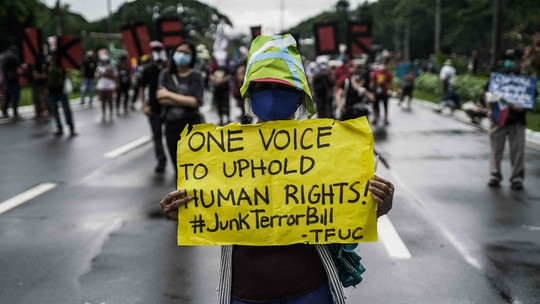On July 23, 2020, journalists, artists, cultural workers and others whose professions and existence depend on freedom of expression, filed a petition for certiorari and prohibition before the Supreme Court against Republic Act 11479 also known as the Anti-Terrorism Act of 2020. The petition was filed as GR No. 252747 and is the 13th to be filed in the Supreme Court.
Other organisations including the National Union of Peoples Lawyers (NUPL), labour groups, senators, and youth groups filed similar petitions to the Supreme Court seeking the court to declare the Anti-Terror Law unconstitutional. Since Philippines president Rodrigo Duterte signed the anti-terror bill into law on July 15, the Supreme Court has received 15 petitions seeking to declare the law unconstitutional.
The anti-terror bill has been widely criticised by freedom of expression organisations for suppressing press freedom and freedom of expression allowing police to detain individuals, including journalists through a vague definition that would class journalists and human rights activists as terrorists without a warrant.
NUJP said section 9 of the law, which criminalises the offence of "inciting to commit terrorism," definitely includes free expression as an element of the crime, in direct contravention of Article III, Section 4 of the 1987 Constitution: "No law shall be passed abridging the freedom of speech, expression, or of the press, or of the right of the people to peaceably assemble and petition the government for redress of grievances."
“It is clear that the Terror Law is anathema to democracy. For all Filipinos who cherish liberty, there can only be one response: Resistance!” added NUJP.
The IFJ said: “The repressive anti-terrorism law in the Philippines grants authorities unfettered power to detain activists and journalists without consideration for the essential role of the media to protect democracy and free expression. The IFJ hopes the court will recognise the dangers of the law and declare the law unconstitutional promptly.

